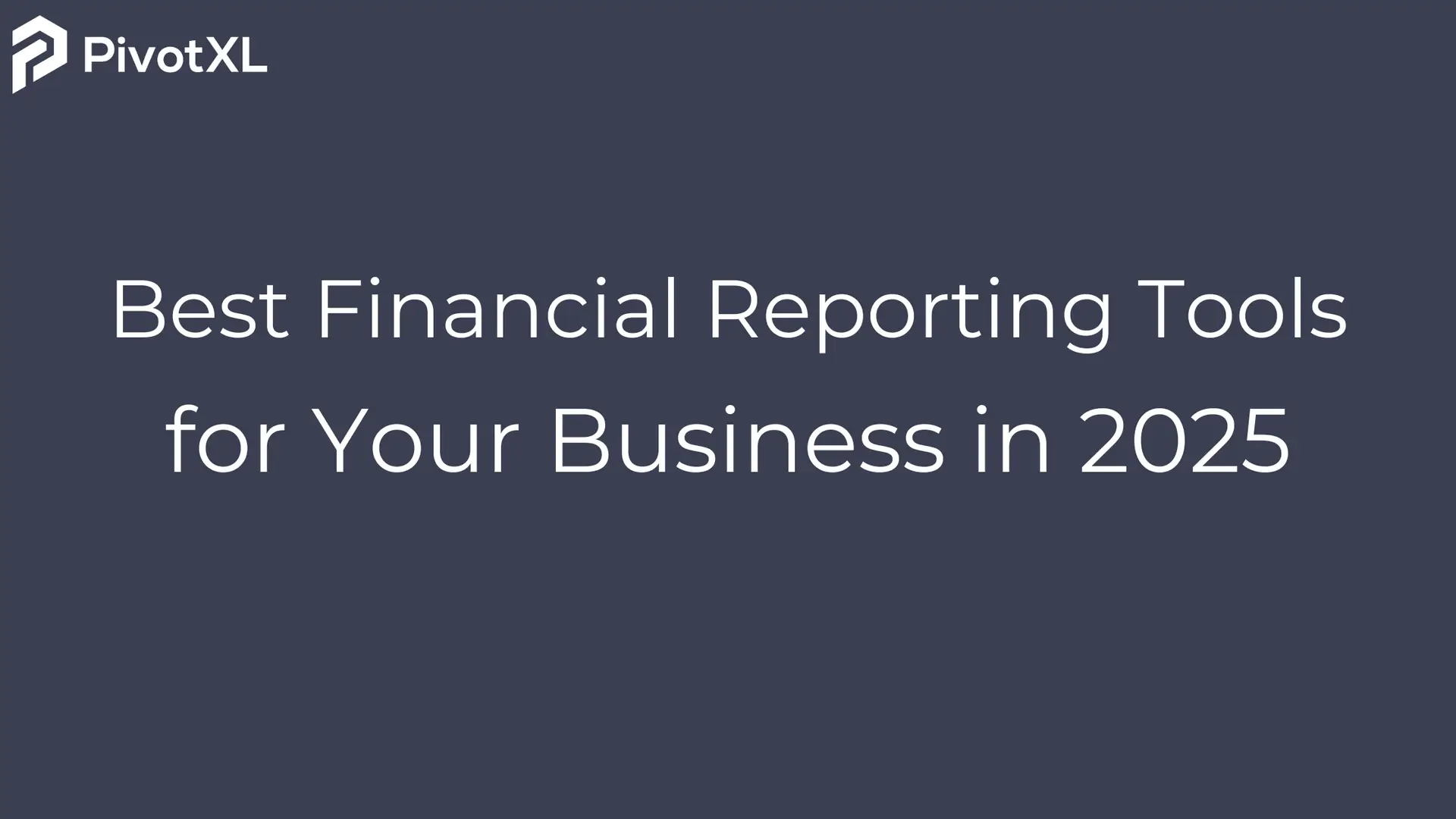Financial reporting is a cornerstone of sound decision-making for any business. Whether you’re a startup or an established enterprise, the right financial reporting tool can streamline processes, improve accuracy, and offer valuable insights. Below, we’ve compiled a list of the best financial reporting tools to help you stay ahead.
1. PivotXL
PivotXL is an innovative financial reporting tool designed for businesses seeking advanced reporting and collaboration capabilities. It offers robust features that cater to both small businesses and large enterprises.
Key Features:
- Customizable financial dashboards
- Seamless collaboration for teams
- Real-time data consolidation and reporting
Why Choose PivotXL? Its ability to handle complex financial data with ease makes it an excellent choice for businesses aiming to streamline their reporting processes.
2. QuickBooks Online
QuickBooks Online is a versatile financial tool trusted by millions worldwide. It’s ideal for small to medium-sized businesses and provides real-time reporting on expenses, profits, and cash flow.
Key Features:
- Easy-to-use dashboards
- Automated invoicing and payments
- Integration with over 650 business apps
Why Choose QuickBooks Online? Its scalability and user-friendly interface make it a go-to solution for growing businesses.
3. FreshBooks
FreshBooks simplifies expense tracking and financial reporting for small businesses and freelancers.
Key Features:
- Time tracking for billable hours
- Comprehensive reporting for income and expenses
- Customizable invoices
Why Choose FreshBooks? FreshBooks is perfect for those who need intuitive software for managing client-related finances.
4. Xero
Xero is known for its robust reporting capabilities and seamless integrations with various third-party applications.
Key Features:
- Real-time bank feed synchronization
- Advanced financial reporting tools
- Multi-currency support
Why Choose Xero? With its comprehensive reporting features, Xero suits businesses that require detailed financial insights.
5. Zoho Books
Zoho Books is a cost-effective financial tool that’s part of the larger Zoho ecosystem, making it great for businesses already using Zoho products.
Key Features:
- End-to-end accounting solutions
- Tax compliance reporting
- Mobile app for on-the-go tracking
Why Choose Zoho Books? It’s an affordable option with plenty of features for small businesses.
6. NetSuite ERP
NetSuite ERP is a cloud-based tool designed for larger enterprises with complex financial needs.
Key Features:
- Advanced financial consolidation
- Multi-currency and multi-entity management
- Real-time analytics
Why Choose NetSuite ERP? Its enterprise-grade features are unmatched for businesses with global operations.
7. SAP Analytics Cloud
SAP Analytics Cloud offers powerful financial planning, analysis, and reporting capabilities.
Key Features:
- Predictive analytics for financial forecasting
- Customizable dashboards
- Integration with other SAP tools
Why Choose SAP Analytics Cloud? Its advanced analytics features are ideal for data-driven organizations.
8. Microsoft Power BI
Power BI by Microsoft is a top choice for businesses seeking advanced data visualization and reporting.
Key Features:
- Interactive dashboards and reports
- Integration with Microsoft 365
- AI-driven insights
Why Choose Power BI? It’s perfect for companies that prioritize data-driven decision-making.
Choosing the Right Tool
When selecting a financial reporting tool, consider factors such as:
- Business Size: Some tools are better suited for small businesses, while others cater to enterprises.
- Integration Needs: Ensure the tool integrates with your existing software.
- Budget: Choose a tool that fits your financial constraints.
Investing in the right financial reporting tool can drive efficiency and provide the insights needed to grow your business. Make sure to assess your specific requirements before making a decision.




